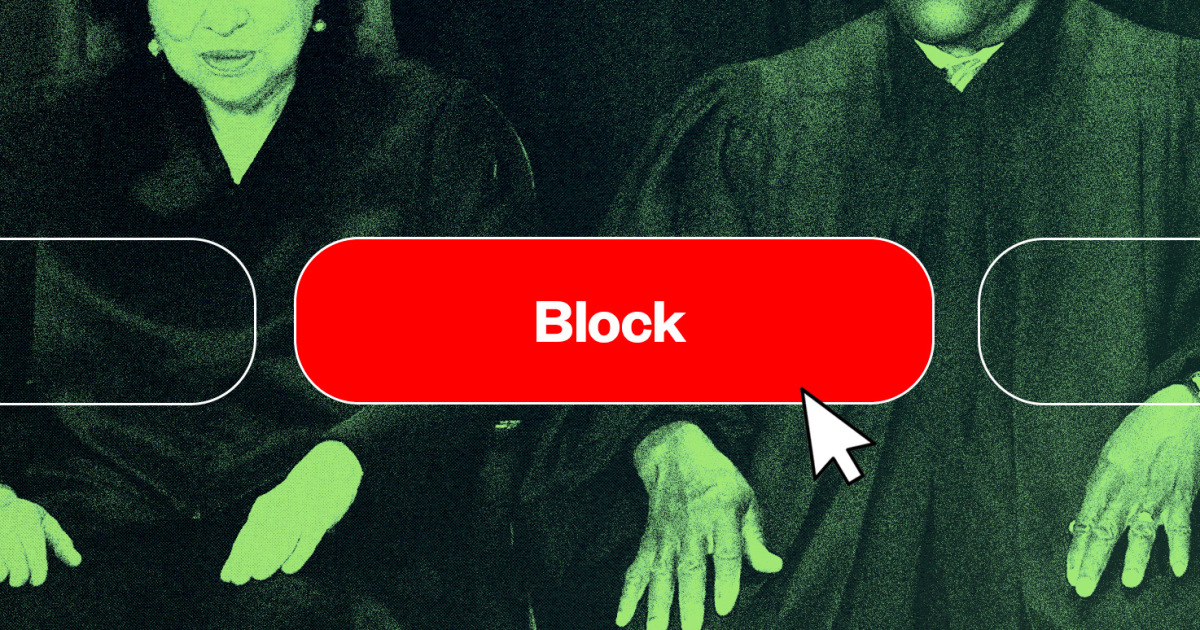Former President Donald Trump’s frequent use of Twitter lurked in the background as the justices weighed whether an official’s online activities can constitute government action.
The Supreme Court ruled Friday that members of the public in some circumstances can sue public officials for blocking them on social media platforms, deciding a pair of cases against the backdrop of former President Donald Trump’s contentious and colorful use of Twitter.
The court ruled unanimously that officials can be deemed “state actors” when making use of social media and can therefore face litigation if they block or mute a member of the public.
In the two cases before the justices, they ruled that disputes involving a school board member in Southern California and a city manager in Michigan should be sent back to lower courts for the new legal test to be applied.



You could make the same argument against every civil liberty the Germans enjoyed in the Weimar Republic: freedom of movement, freedom of press, freedom of assembly, even democracy.
Here’s more specifics: https://thehill.com/opinion/education/4317052-what-the-vexed-history-of-campus-hate-speech-codes-teaches-us-about-fighting-antisemitism/
https://www.hrw.org/report/2023/12/21/metas-broken-promises/systemic-censorship-palestine-content-instagram-and
That’s exactly my point, the Nazis never acted in good faith, they were never beholden to the freedoms they used, in fact they used those freedoms to get rid of them, so to protect them we have to restrict them. So unfortunately we have to exclude some things from the protection Democratic values can deliver. For example the swastika in Germany - all it represents, all it refers to in that context is anti democratic, anti freedom so if you show it outside of a educational context we have to assume it represents exactly that - that you want to get rid of democratic values like free speech, so we exclude that symbol from the protection of our democratic values TO protect said democratic values.
It’s a little paradox and a lotta complicated. We should never take those measures lightly but imo they have to exist, because history showed that if you don’t protect them , some forces are willing to use them to destroy them.
Your first link shows what happens when we don’t apply those measures carefully and too broadly, the framework has to be very precise for them to make sense, otherwise they do the job of the deconstructors of democracy for them.
Your second Link refers to a private entity, those can not restrict free speech, they can censor what speech they want to host and it is their right under free speech to do so, so it is irrelevant. Like if you’re in my house talking shit I can kick you out, no free speech was impeded by that action, I just exercised my free speech to show you the door.
I’d like to point out that this thread began with me asserting that the left and right are both anti-free-speech in different contexts. I was told I was wrong. I asked how I was wrong. Then you stepped in and began arguing against free speech in certain situations. This is my precise point. The left is not pro-free-speech, but pro-speech-I-like, just like the right. Why should the right respect your speech rights if you don’t respect their speech rights? The end result is everyone’s speech rights get chipped away, and eventually speech restrictions will be used by antidemocratic forces within the government to entrench themselves.